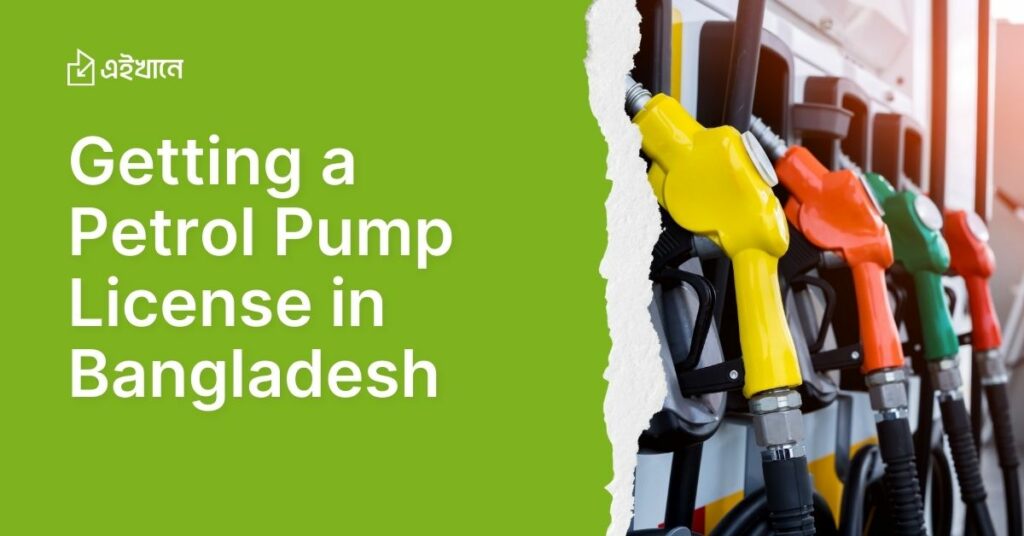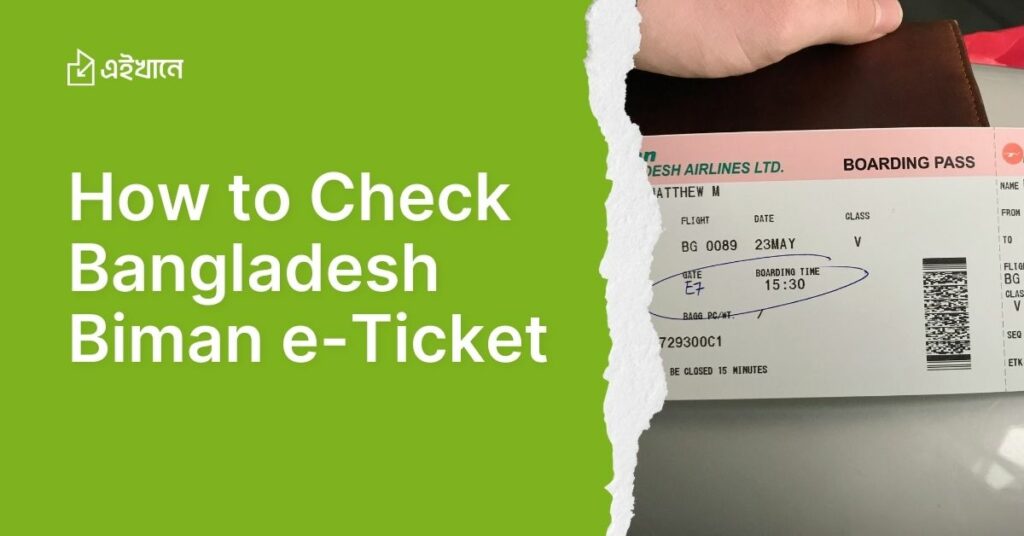Complete Guide to Obtaining a Petrol Pump License in Bangladesh: Essential Requirements and Procedures
Eligibility Criteria for a Petrol Pump License
Before applying for a petrol pump license in Bangladesh, it is important to understand the eligibility criteria set by the concerned authorities. Primarily, the applicant must be a Bangladeshi citizen and must own or have possession of a suitable piece of land. This land should meet the required specifications like road frontage, accessibility, and safety measures. Additionally, financial stability is key, as the applicant needs to demonstrate that they possess adequate capital for construction and maintenance of the petrol pump.
Location Requirements for Setting Up a Petrol Pump
The location of a petrol pump is one of the critical factors considered in the approval process. The site should be in compliance with zoning regulations, away from residential areas, schools, or hospitals for safety reasons. It should also be positioned at a safe distance from other petrol pumps. The minimum road width where the petrol pump will be situated should comply with the laws stipulated by the Roads and Highways Department (RHD) or local governing bodies.
Compliance with Environmental Regulations
To obtain a petrol pump license, adherence to environmental guidelines is compulsory. An environmental clearance certificate from the Department of Environment (DoE) must be provided. The applicant needs to ensure that the proposed petrol pump does not adversely affect the surrounding environment. Pollution control measures, proper waste management systems, and designated spaces for underground fuel tanks are some of the requirements under environmental regulations.
Submission of Application to the Bangladesh Petroleum Corporation (BPC)
The application process begins with submitting an official application to the Bangladesh Petroleum Corporation (BPC). The application form can be obtained either from the BPC office or through their online portal. Along with the necessary documents, such as ownership proof of the land, environmental clearance certificates, and business plan, applicants must fill out details about the location, design, and operational scope of the proposed petrol pump.
Verification and Inspection by Authorities
After submission, the application goes through a rigorous verification process. Officers from relevant departments such as the BPC, Department of Explosives, and local fire safety authorities may conduct on-site inspections to ensure compliance with guidelines. This inspection ensures that all safety, location, and environmental standards are fulfilled before granting preliminary approval.
Approval Process and Issuance of Provisional License
Once the verification and inspections are completed satisfactorily, the authorities issue a provisional license to the applicant. During this phase, the applicant needs to fulfill further requirements, such as setting up the infrastructure of the petrol pump according to the approved plans. Regular updates and reports may be requested by the overseeing authorities.
Final Approval and Operational License
Once the infrastructure is set up and all conditions of the provisional license are met, the applicant can apply for final approval. Another round of inspection might be conducted by relevant departments. If everything is found to comply with the legal, safety, and operational guidelines, the applicant is granted the final, operational license, allowing them to start the petrol pump operations officially.
Renewal and Maintenance of the License
The petrol pump license in Bangladesh needs to be renewed periodically. Failure to renew the license on time may result in penalties or even cancellation of the license. License holders are also required to maintain compliance with ongoing regulations, including safety checks, environmental clearances, and adherence to quality controls mandated by the authorities.
Understanding the Legal Framework and Documentation Needed for Bangladesh Petrol Pump Licensing
Overview of the Regulatory Bodies Involved
Several regulatory bodies play critical roles in the petrol pump licensing process in Bangladesh. The primary authority is the Bangladesh Petroleum Corporation (BPC), which supervises the allocation and distribution of fuel products. Other agencies such as the Department of Explosives, the Department of Environment (DoE), and local government units also have significant involvement. These departments ensure compliance with safety, environmental, and land-use regulations. Understanding the roles of these bodies is essential to navigate the licensing process smoothly.
Legal Acts Governing Petrol Pumps
Petrol pumps in Bangladesh must comply with several legal frameworks that regulate their operations. Key laws include the Petroleum Act of 1934, the Explosives Act of 1884, and the Bangladesh Environment Conservation Act of 1995. Additionally, the Roads and Highways laws govern the placement and construction standards for petrol pumps. Familiarity with these acts helps the applicant adhere to all necessary legal requirements, minimizing the risk of delays or legal repercussions.
Land Ownership and Lease Documentation
One of the crucial documents for obtaining a petrol pump license is proof of land ownership or a legally binding lease agreement. The land document must be verified by local land authorities to confirm that the applicant has clear and undisputed rights over the property. If the land is leased, it must be for a long-term period, typically specified by the concerned departments, and accompanied by an official lease agreement between the owner and the applicant.
No Objection Certificate (NOC) from Local Authorities
A No Objection Certificate (NOC) from local governing bodies, such as municipal corporations or union councils, is mandatory for the petrol pump license. This NOC verifies that the location is acceptable for business activities and does not violate local zoning laws. The applicant must submit this certificate along with the application to ensure that local authorities have no reservations about the proposed site.
Environmental Clearance Certificate
The Environmental Clearance Certificate, issued by the Department of Environment (DoE), is another critical document required for a petrol pump license. The DoE assesses whether the petrol pump’s operations will have any adverse effects on the environment. Applicants need to provide detailed plans of pollution management strategies, waste disposal systems, tanker filling protocols, and measures to prevent soil or groundwater contamination.
Explosive License from the Department of Explosives
Given that petrol pumps deal with highly flammable substances, the Department of Explosives plays a vital role in ensuring public safety. To obtain an explosive license, specific storage and handling guidelines for petroleum and other hazardous materials must be met. The department conducts multiple inspections before granting this license, which is an indispensable part of the overall petrol pump licensing process.
Fire Safety Certification
Fire safety precautions are fundamental when dealing with fuel. Applicants must acquire a fire safety certificate from the Fire Service and Civil Defence Department before a petrol pump can become operational. This includes equipping the petrol station layout with adequate fire suppressants, extinguishers, and emergency response mechanisms. The facility is inspected thoroughly before the certificate is awarded.
Business Plan and Financial Documentation
Along with various permits and certificates, applicants are required to submit a comprehensive business plan. This plan outlines projected expenses, profitability, potential customer base, and operational strategies. Additionally, financial documentation that demonstrates the availability of sufficient funds to set up and run the petrol pump is essential. This includes bank statements, tax returns, and possibly even letters of credit.
Licensing Fees and Application Charges
There are several fees associated with applying for a petrol pump license in Bangladesh, including application submission charges, inspection fees, and fees for obtaining various certificates. The exact amount may vary depending on the scale of the project and the specific locality, but understanding and budgeting for these expenses in advance is important to avoid any unexpected financial hurdles.
Submission of All Documentation to BPC
After gathering all the required documents such as the NOC, environmental clearance certificate, explosive license, and fire safety certificate among others, the applicant must submit them to the Bangladesh Petroleum Corporation (BPC). This bundle of documents forms a comprehensive case for the approval of the license. Any incomplete or inaccurate submissions can result in rejection or delays, so thorough preparation is crucial at this stage.
How to Navigate the Application Process for a Fuel Station License in Bangladesh
Obtaining the Application Form
The application process for a fuel station license in Bangladesh begins by acquiring the official application form from the Bangladesh Petroleum Corporation (BPC). Forms can be obtained in person at the BPC’s main offices or accessed via their online portal. Applicants should carefully review the form and ensure they understand the specific details required, such as land ownership, equipment setup, and other logistical information.
Filling Out the Application Correctly
Accuracy is crucial when completing the application form. Applicants must provide detailed information regarding the proposed location, business ownership structure, financial resources, and compliance with environmental standards. Furthermore, any inaccuracies or omissions can lead to delays or even a rejection of the application. Applicants should double-check all entries, especially those relating to adherence to zoning laws and safety regulations.
Preparing the Required Documentation
Various documents need to be prepared before submitting an application for a petrol pump license. These include proof of land ownership or lease agreements, environmental clearances, a No Objection Certificate (NOC) from relevant local authorities, and a fire safety certificate. Additionally, applicants should have financial statements ready, which demonstrate sufficient capital to construct and maintain the petrol pump facility. Each document must be current and in proper order to prevent processing delays.
Submission of Application and Associated Fees
Once the application form and all necessary documents are assembled, the next step is submitting them to the BPC office or via their designated online platform. Along with the submission, licensing fees and application charges must also be paid. These fees generally cover administrative costs, inspections, and the processing of certifications by the various government bodies involved. The exact fee amounts may vary based on the project size and location.
Tracking the Application Status
After submission, applicants can track the status of their application through the BPC online portal or by visiting the BPC office. It is essential to keep track of each stage of the process, from initial review to site inspection and final evaluation. If any further documentation or clarifications are required, prompt submission will help avoid unnecessary delays in obtaining the license.
Inspection and Verification Phases
As part of the application process, the respective authorities will carry out inspections and verifications. This may involve visits from officials of the Department of Explosives, environmental agencies, fire safety authorities, and the BPC itself. These site visits ensure that the location and setup of the proposed petrol station meet all safety, environmental, and legal guidelines. Preparing the site and ensuring it complies with the standards beforehand can facilitate a smoother inspection process.
Handling Application Queries and Revisions
During the review phase, applicants may receive queries or requests for revisions from the BPC or other involved authorities. Addressing these queries promptly and thoroughly is critical to ensure the application stays on track. Whether it is a request for additional documents, clarification on land-use rights, or adjustments to the business plan, timely responses will prevent delays and improve the chances of securing approval.
Receiving the Provisional License
If the application meets all requirements after inspections and reviews, the applicant is granted a provisional license by the BPC. This allows the applicant to start constructing the petrol station infrastructure according to the approved plans. However, this license comes with conditions, and ongoing compliance with safety and environmental standards remains crucial.
Applying for Final Approval
Once the construction of the petrol pump is completed per the provisional license guidelines, the applicant must apply for final approval. This entails submitting reports on the development process, including proof that all conditions have been met. Authorities may conduct another round of inspections before granting the final operational license, allowing the petrol pump to officially commence operations.
Key Steps and Timeline for Securing Your Petrol Pump Business License in Bangladesh
Preliminary Research and Land Acquisition (Step 1)
The first step in securing your petrol pump license is conducting thorough research on legal requirements, environmental regulations, and the strategic location of your station. During this phase, you should also finalize land acquisition, ensuring that the property complies with zoning laws and is suitable based on road frontage and safety guidelines. This step typically takes about 1 to 2 months, depending on the speed of land negotiations and verification of ownership documents.
Securing Environmental Clearance and No Objection Certificate (NOC) (Step 2)
Once the location is confirmed, you must apply for an Environmental Clearance Certificate from the Department of Environment (DoE). Simultaneously, secure a No Objection Certificate (NOC) from local authorities, verifying that the proposed site does not violate any community or zoning restrictions. Obtaining these certificates can take about 1 to 3 months, as inspections and environmental impact assessments are conducted during this period.
Submission of Application to Bangladesh Petroleum Corporation (BPC) (Step 3)
With your clearance certificates and NOC secured, you can now begin the application process with the Bangladesh Petroleum Corporation (BPC). Along with the application form, all required documents like proof of land ownership, environmental approvals, and business plans must be submitted. This is a critical stage where inaccuracies in paperwork could lead to longer processing times. Typically, the submission review may take 2 to 4 weeks depending on the completeness of the application.
Inspection and Verification by Relevant Authorities (Step 4)
Once your application is submitted, several departments—including the BPC, Department of Explosives, and fire safety authorities—will conduct site inspections. These inspections verify whether your proposed petrol pump adheres to safety, environmental, and infrastructural guidelines. The inspection phase usually takes another 1 to 2 months, depending on the complexity of the project and the availability of inspectors.
Issuance of Provisional License (Step 5)
If inspections are successful, the BPC will issue a provisional license, permitting you to commence construction of the petrol station. The timeline given for this license is generally between 6 to 12 months, during which time you must ensure that construction follows all approved guidelines and safety protocols outlined in your provisional agreement.
Final Inspection and Approval (Step 6)
Upon completion of construction, you must notify the authorities for a final round of inspections. Inspectors will visit your petrol pump to ensure that the infrastructure is safe and compliant with legal, environmental, and safety standards. This phase typically lasts 1 to 2 months, after which you can apply for the final operational license.
Receiving the Final Operational License (Step 7)
Once your petrol pump passes the final inspection, you will receive the official operational license, allowing you to begin business activities. This marks the conclusion of the licensing process. Generally, this final step takes an additional 2 to 4 weeks, depending on the promptness of your final submissions and the assessment by the authorities.
Total Estimated Timeline for Securing Your License
In total, the process of obtaining a petrol pump license in Bangladesh may take anywhere from 9 to 18 months, depending on factors such as land acquisition, compliance with regulatory requirements, and the efficiency of inspection processes. Proper planning and attention to detail at each stage can help reduce unforeseen delays and expedite the approval process.
Government Regulations and Compliance Requirements for Petrol Pump Licensing in Bangladesh
Adherence to the Petroleum Act and Related Laws
Applying for a petrol pump license in Bangladesh involves strict compliance with laws governing petroleum and related chemicals, primarily the Petroleum Act of 1934. This act regulates the import, storage, and distribution of petroleum products, requiring applicants to follow safety and operational guidelines meticulously. Other laws such as the Explosives Act of 1884 and relevant provisions from the Bangladesh Environment Conservation Act of 1995 must also be adhered to. Any violations can lead to penalties, delays, or even cancellation of the license application process.
Compliance with Environmental Regulations
Environmental protection is a major focus in petrol pump operations, and all applicants must secure an Environmental Clearance Certificate from the Department of Environment (DoE). This requires the submission of detailed proposals on pollution control measures, waste management practices, and soil and water protection strategies. Additionally, the government mandates continuous monitoring and reporting to ensure ongoing compliance with environmental standards.
Safety and Fire Precautions under Licensing Laws
The handling and storage of flammable substances like petrol require adherence to stringent safety protocols. Applicants need to obtain approvals from the Department of Explosives and submit documents detailing storage designs, safety equipment placement, and fuel handling procedures. Fire safety measures are reviewed by the Fire Service and Civil Defence Department, which issues a Fire Safety Certificate after conducting inspections for proper fire suppression systems, extinguishers, and emergency evacuation plans.
Land Use and Zoning Compliance
Fuel station projects must meet zoning requirements, particularly in terms of land use, road access, and proximity to residential areas or public institutions. The Roads and Highways Department (RHD) specifies minimum road width criteria, while local authorities regulate the distance from sensitive locations like schools and hospitals. A No Objection Certificate (NOC) from local municipalities or union councils verifies that the proposed site is suitable for setting up a petrol pump under current zoning laws.
Meeting Tax and Financial Reporting Obligations
To operate legally, petrol pump owners must comply with national tax regulations, including income tax and VAT (Value-Added Tax). Periodic financial reporting to the Bangladesh Petroleum Corporation (BPC) and other regulatory bodies ensures transparency in revenue generation and business activities. Failure to submit accurate financial reports may lead to audits, fines, or cancellations of the license.
Periodic Audits and Compliance Checks
Even after a petrol pump license is issued, operators are subject to routine audits and inspections to check their ongoing compliance with safety, environmental, and quality control standards. Authorities like the BPC, fire department, and environmental agencies often conduct unannounced checks to mitigate risks and ensure that all legal obligations are being met throughout the pump’s operational life. Repeated compliance failures could result in substantial fines or revocation of the operating license.


